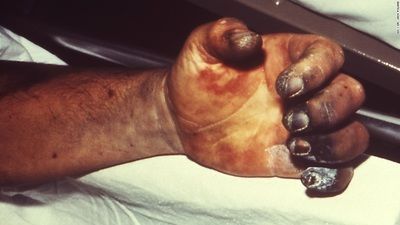
International emergency, outbreak of bubonic plague in Madagascar
It is an international emergency because of the risk of rapid spread of bubonic plague, which has hit Madagascar for several days now with an endemic outbreak that has already claimed the lives of 21 people. But 100 people are already infected, and in the coming hours, as local authorities point out, the death toll could be set to rise, leading to heightened alarm not only among local authorities but also from the WHO, which is closely monitoring the situation.
Plague, and particularly bubonic plague, is endemic in Madagascar, with at least 400 cases reported each year, mainly in rural areas. But what worries WHO is the “rapid spread” of the disease in the capital, Antananarivo, and other major cities, as it did in 2014, when there were more than 40 deaths in the country.
“We are concerned that the plague may spread widely because it is already present in several cities at the beginning of what is usually the epidemic season“, explained Dr. Charlotte Ndiaye, WHO representative in Madagascar, adding that teams from the health organization are already on the ground and coordinating with local health authorities.
Plague is a “disease of poverty” and develops in unhealthy and degraded areas with poor health care. The bacterium that causes it, Yersinia pestis, develops in rats, is then carried by fleas. In humans who have been bitten by a flea, the disease usually develops in a bubonic form: if the bacterium affects the lungs, it also causes pneumonia and can be transmitted by air when the sick person coughs.
Diagnosed in time, bubonic plague is treated with antibiotics. But the pulmonary form, which is one of the deadliest infectious diseases, can lead to death in as little as 24 hours. The “Sportello dei Diritti,” which also works to protect the health of citizens, brings to the public’s attention the WHO’s alert, which is also useful for travelers to avoid contagion from communicable diseases or viruses.
Since travel to such a destination is frequent, points out Giovanni D’Agata, president of the “Sportello dei Diritti,” vigilance must be maintained for possibly imported cases of Plague in the EU, also in order to raise awareness among physicians, health workers and blood safety authorities.
However, imported cases in the EU have not been detected among migrants and travelers returning from endemic areas.